Instead of giving a lengthy explanation, I’ll just list down all possible ways one can make money through foreclosures, based on what I have learned in the past 2 years. Please feel free to add more by leaving your comments.

1. Buy and Hold
This is the strategy of a person who buys a foreclosed property and holds on to it until its market value appreciates. In a nutshell. one can make money from the buy and hold strategy through the following:
- Selling the property for a profit. This assumes of course that the market value has indeed increased. Most of the time, however, it would take several years for a property to appreciate in value, and the cost of maintaining it, taxes, etc. are often not considered, hence, the owner has no idea if he will make any money when he sells his property.
- Refinancing the loan to convert the owner’s equity into cash*. Equity is the difference between the current appraised value and the loan principal balance. When the appraised value increases, the equity increases as well. To cash out the equity, one can get a new appraisal from another bank that reflects the increased market value of a property and then a new and bigger loan is secured based on this new appraisal. The original loan will then be paid for using the proceeds of the new loan and then the owner pockets the excess cash.
Actually, there are two common ways the buy and hold strategy is done here in the Philippines.
- Buy and hold( and pray), which basically means aside from praying that the property will go up in value, the buyer does nothing with the property and it becomes idle
- Buy and hold and have the property rented out
Here in the Philippines, it’s common to see people using the buy and hold (and pray) strategy for land. In my opinion, this is not a very smart move because there’s usually no positive cashflow from land while there will surely be expenses like real property taxes, property mainenance, etc, and of course let’s not forget the risk of having squatters taking over the land and the owners would later have to spend money just to eject them.
Furthermore, I often hear a lot of stories where people are unable to sell a piece of land they have been holding for a long time when they have an immediate need for cash, so they are forced to sell at a loss. There are some instances too when people sell the land they have been holding for a long time and jack-up the prices so they can have a huge profit, and because of this, no one is interested in buying the land.
Others apply the buy and hold strategy by buying a property, and then have it rented out, while hoping that the property’s value will appreciate, without considering the cashflow it generates. More often than not, these properties are negatively-geared or have negative cashflow. Again, this is not a smart investment strategy in my opinion as they tend to be like a money pit. I won’t be surprised if some of these properties end up being foreclosed again.
One should only apply the buy and hold strategy if a property can generate positive cashflow as a rental property as described below.
2. Rentals (with positive cashflow!)
Buy a property, apply minor cosmetic changes like a fresh coat of paint and have it ready for occupancy, then rent it out. At the very least, when buying a foreclosed property, the numbers should work in such a way that if you turn it into a rental property, it can generate positive cashflow.
You basically make money through the rent your tenants pay you on a monthly basis and this should more than cover all expenses like amortization, taxes, insurance, etc. This should produce a nice steady positive cashflow every month. I personally don’t take a second look at a property if it won’t be profitable if I rent it out as this is my last exit strategy. Check this out if you want to learn how to calculate the ROI of rental properties.
3. Rent-to-own
With rent-to-own (which is more appropriately called a lease with an option to purchase), you give tenants the right to purchase the property for a certain amount, which is often called a downpayment. Tenants who become buyers still pay on a monthly basis but instead of paying rent, they are actually paying for the property through monthly installments.
Instead of the usual 2 months advance and 1 month deposit, tenant-buyers pay a down payment which is usually higher than 3 months rent. The seller has the option to charge monthly installments that are higher than the usual monthly rent in this scheme. Because of this strategy, the monthly positive cashflow and ROI can be substantially higher than if it was just a simple rental property.
This method is showcased in Dr. Larry Gamboa’s book, Think Rich Pinoy!. If you haven’t read this book yet, I highly suggest you do.
4. Flipping
Flipping is done when one buys a property and sells it quickly for a profit. The best flipping method is when you buy a foreclosed property today, but already sold it yesterday. How, you ask? Sometimes one may already have an agreement with a buyer that he will buy a property before you have actually bought it.
5. Rehabbing
When you buy a foreclosed property that may need some repairs, fix it up, and then sell it at full market value, you call that Rehabbing, or buy-renovate-sell. If done correctly, this can result in huge profits. This is quite risky though, as cost over-runs during repairs or renovations are quite common.
If you’ve watched the show “Property Ladder“, you’d know what I mean. Anyway, since foreclosed properties are often priced below market value by as much as 40% or more, there’s a lot of room for hefty profit margins.
6. Wholesaling
Wholesaling is buying a property way below market value and then selling it for a price slightly higher, often to other real estate investors engaged in rehabbing. Profits are not as big as profits from rehabbing because obviously the buyers would need to buy at a price with room for them to make money as well.
Some say this strategy is a great way to make quick cash and is far less risky and beginning investors should seriously consider using this strategy when getting started. You just have to be good at spotting diamonds in the rough, so to speak.
7. Tax Foreclosures
For tax foreclosures, one makes money when his winning bid for an auctioned property earns interest. The City Treasurer or his deputy shall return to the winning bidder the entire purchase price paid by him plus the interest of 2% per month computed from the date of sale to the date of redemption.
The earned interest can be substantial (Hey, 2% per month is 24% per annum and that’s pretty hard to beat) and is truly passive income. However, one will have to wait until the delinquent owner redeems his property, and this could take up to a year. If the year lapses, you end up owning the property and then you can earn money by using any of the techniques I discussed above.
By the way, the most recent tax foreclosure auction I attended was in Marikina City and you may want to check it out. Other cities in the Metro like San Juan still have no scheduled auctions as of this writing.
8. Commissions
If a foreclosed property is sold through a negotiated sale and the buyer formally notifies the bank that you are the one that referred the property to him, you can earn a commission, which is normally 5% for accredited licensed brokers.
For public auctions, I believe the commission rate is only 1%. I have been a licensed broker for more than a year now but have yet to earn from this because I only learned about this recently, during the Unionbank auction I attended. I noticed that the registration form for the auction had a space for “Referred by” and I asked about this afterwards.
Also, I haven’t been accredited by any bank at the moment, mainly because my Broker’s ID from DTI is yet to be released due to a technical glitch in their ID system. So far I have managed to get accredited with CBRE as they don’t require the Broker’s ID from DTI.
Once I do get my Broker’s ID and get accreditation from other banks, I will definitely pursue this. This might also give me leverage and get bank foreclosed property listings before they are released to the public, which I’ll post in this blog for sure. We’ll see!
9. Pre-foreclosures
This is when a property owner is facing foreclosure and an investor would help stop the foreclosure by buying the property, which is often the last recourse to avoid the foreclosure as the proceeds of the sale shall be used to have the mortgage fully paid. The seller often sells the property at a very low selling price, usually for what he owes plus a little cash, just to get the property sold as fast as possible. In these situations, an investor should never take advantage of the seller’s misfortune and should offer a win-win solution for everyone.
Conclusion
These are just some of the ways of earning money through foreclosures and do take note that these strategies can be combined with one another. Actually, all of these techniques or strategies apply to real estate investing in general, not just to foreclosures. However, these can be applied more easily to foreclosures because they are often sold way below market value, require very little down payment (usually only 10%), and banks offer long payment terms.
You guessed it, all of these strategies shall be discussed in greater detail in future posts.
How about you, do you know of other ways of making money by investing in foreclosures? Have you started making money?
When I first learned about all of these stuff, I thought to myself that I wish someone had told me about these earlier!
Let me know what you think by leaving your comments. Thanks!


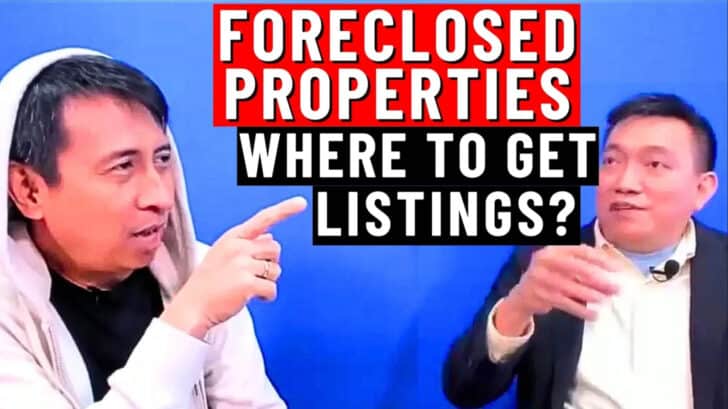
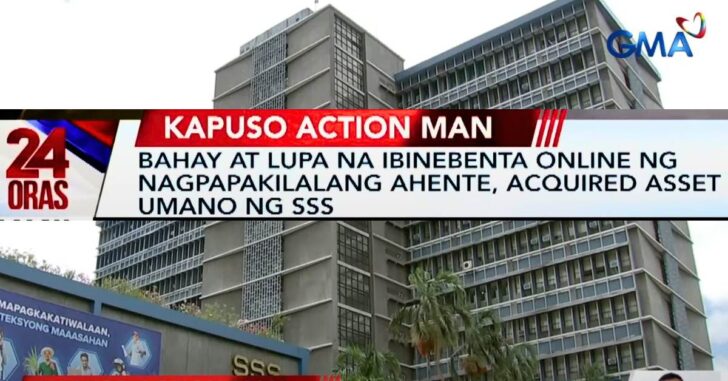
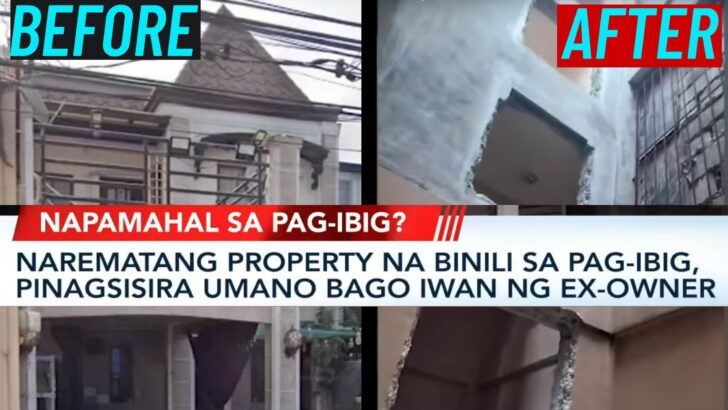
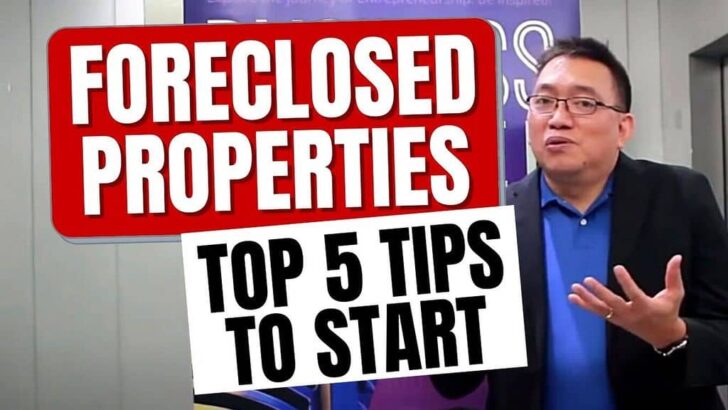
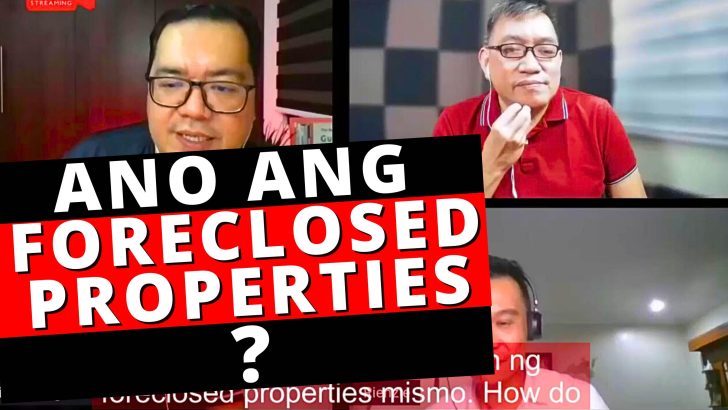
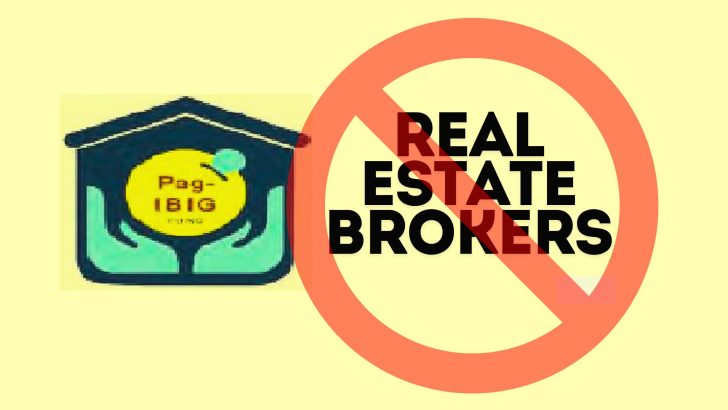
I am a newbie in real estate. In fact, I just started to read and learn to know just three weeks ago, when I make a decision to participate in property investment. Anyway, you mentioned in your answers to the above large capital requires little or no capital. For a beginner like me, prefer to do great as the first step. I have a favor please Can you please explain a bit about how we can make money wholesale, even without the withdrawal of money? I'm not sure right now if you have published an article about this already, if I send the link.
.-= Famous entrepreneurs´s last blog ..By: Bill =-.
Pingback: To all OFW’s: Need To Earn Passive Income And Come Back Home For Good? Try Foreclosed Property Investing!
I’m just starting out on this business, and I’ve been following your blog for sometime now. I like what I read it’s really helpful. I just need some clarification regarding the “Buy and Hold” strategy you mentioned above specifically on refinancing (item 2), can you elaborate more and give example so I can fully understand. Thanks in advance.
Hi Jay, I’ve read through your blog and it is truly very informative. I don’t have any idea about real estate but I want to start investing my money this way. Just wondering how I can actually attend or have access to auctions for foreclosure properties?
Cheers!
I would like to find out about buying an aqcuired asset with an “as is” clause? I would also like to know how/who would go about ejecting the occupants of the said property if I do decide to purchase? Who shoulders the cost and responsibility? I’m new at this and am trying to look at different websites but your blog seems to be helping out alot of people and I am hoping that you can do the same for me.
Hi Jay,
I have been reading a lot from your site and everytime a question pops up in my mind I immediately consult your blogs to look for the answers. I am glad I always find the right answers. And browsing through the comments is really helpful, it’s like pulling the info straight from the horse’s mouth.
I am newbie in Real Estate. In fact I just started reading and learning about it just 3 weeks ago when I make a decision to venture in Real Estate Investing. Anyways, you mentioned in one your replies above that wholesaling requires little capital or no capital. For a newbie like me, I would prefer to do wholesaling as the first step. I have a favor please: -> Can you please expound on this a little bit how we can make money in wholesaling even without a cashout? I’m not sure at this very moment if you have posted an article about this already, if ever kindly send me the link.
Thanks very much Jay.
Hi Jun, to be honest, I am itching to do a wholesale deal but I still have some questions on my mind. In the US, I believe they do wholesaling by getting a property that is being sold way below market value(from highly motivated sellers) under contract, and then turning around and selling it by assigning the contract for a small profit to other investors that are looking for fixer-uppers, etc. This is something I want to learn how to do so maybe I can create a series of posts about this until I eventually close a wholesale deal myself.
You are most welcome to you join me as I try to learn and do my first wholesale deal. 🙂
Hello Sir,
I’ll be posting this article on a forum on how to invest in real estate. This will surely help people understand real estate more.
Thanks and more power,
Jeffrey Baclangen
Hi Jeffrey,
That would be great, thanks! No need for “sir” by the way. 🙂
HELLO JAY….IM RELATIVELY NEW TO REAL ESTATE,COULD YOU GINE ME INFO ON HOW DO I MAKE AN OFFER TO THE BANK IF IM INTERESTED TO BUY A CERTAIN PROPERTY…THANKS AND GOBLESS US ALL…
Hi Fernando,
You basically just need to get a copy of the official bid form from the bank then use it to submit your offer. Sorry for the late reply. It seems you entered your comment right after our house got submerged and it took me some time to read this. Don’t forget to do your due diligence prior to submitting an offer. Goodluck!
GREAT HELP.MUCH APPRECIATED
You’re welcome!
HELLO JAY….I WAS TRYING TO OPEN THE FILE OF THE PDIC PROPERTIES BUT IT SEEMS THERE WAS AN ERROR SINCE THE FILE THat APPEARS IN THE SCREEN DOESNT HAVE ANY WRITINGS IN IT…CAN YOU POST IT AGAIN PLEASE MAYBE IN A DIFFERENT FORMAT…..THANKS
Hi Fernando, I have just replaced the file, kindly try again. Thanks!
Sir can you help me sell a property in Pasig?:) Its an Empire East condo.:)
Hi Frances,
I’ll see what I can do! 🙂 Can you please give me more info? I’ll send you an e-mail so you can reply with the details.
Hi Jay,
JP again here! Nice article. By the way, I have an interested buyer for a rent-to-own scheme. Kindly drop me an email so we could discuss this further.
Thanks,
JP
Hi Jay, I am one of the regular visitor in your website and I really enjoy reading all informations. I’ve been out of the country for 5 years at gusto ko pa ring bumalik at manirahan diyan sa atin for good. Na inspired naman ako pag binabasa ko yong real estate investing at gusto ko rin sanang magtry, but how can I bid kung wala naman ako diyan. Pls give me some advice.
Hi Angie, thanks for being a frequent visitor! May I ask if you have any trusted relatives here who can do the leg work for you? Hmmm, I’ll come up with a post for OFW’s like you and all the options that I can think of… please watch for it… thanks!
hi jay,
this is really helpful!
im still about to start investing and i need a lot of research to do, reading your articles. its really helpful indeed.
im residing in cebu actually but havent seen any foreclosed property in the auctions..why is that so? where then should i find one?
thank you
Hi Jedi, you’re welcome and I’m so sorry for the late reply. I should really get a commenting system in place so that I can easily reply to all comments as they are queued without the need to check each post. Anyway, there are now a lot of foreclosed properties from Cebu in the recent provincial listings I have posted like the one from Buena Mano: https://www.foreclosurephilippines.com/2009/08/repossessed-houses-for-sale-through-sealed-bidding.html
Hi!I think God led me to dis site, i’ve been praying & looking for info for days coz i want to learn more about real estate. hope u can help me this is my 2nd chance to prove my parents I’m a dreamer with big dreams. My father gave me a capital to start a small business, we franchised a burger chain (wait a MINUTE! it’s a scam so don’t try it) which ended up bankrupt and have to close it down just dis month. Sobrang down talaga po ako. Gusto ko po sana makabawi at naisip ko po na pasukin ang buy & sell of foreclosed properties.May nakita po kc me sa Bahay Financial located in Cavite 300K.Can u help me please step by step. Thank u! God bless US!
Hi dreamer, I’m sorry to hear what happened to your burger franchise. I’m sure however that you have learned a lot from the experience which will greatly increase your chances for success in your next endeavor. I’ll just summarize the steps as follows. Learn to manage your finances so that you will have the money to invest when you find good or great deals. Set your goal, ano ba ang objective mo? Example, to purchase at least 1 property in the next 6 months that can generate 10K of positive cashflow, etc. Announce mo sa friends, family, and acquaintances that you are now a real estate investor and you are looking for any leads for foreclosed properties. Decide where you want to invest and familiarize yourself with the area. Familiarize yourself with the basics of real estate investing by reading books, attending seminars, or even by reading the articles in this blog… focus ka dun sa featured articles sa 2nd column sa baba. Network with a broker or agent or why not try to be one and learn from your peers. Get a mentor. Take action! Sorry kung medyo magulo at mahaba, gagawa ako ng post about all of these steps soon.
a drear is always a dreamer, he never realizes his dream into a truth!
Pingback: 4 Tips On How To Stop Foreclosure
Hi Jay,
Im planning to try wholesaling. Do you have to transfer the title to your name already or you can do blank deed of sale like in car ‘buy & sell’ way? Tnx and more power!
Hi Dud67, for wholesaling, no need to transfer the title to your name. You can use an option to purchase contract where the buyer agrees that he will sell a property for x amount and then you can in turn sell the property, although I believe this is hard to do with bank foreclosed properties. This should work with properties that are for sale by owners (FSBO). I haven’t tried this yet though. I wish I can give more info but I am still learning about this way of wholesaling from my mentor, Trace Trajano. Thanks for visiting and sorry for the late reply!
Hi Jay, Im Jake Bere from cebu.. I've been an investor in mutual funds and stocks since early 2008. Although I'm still very young I really have a big dream and also been reading about real estate for almost 2 years. I've already been checking NPA Listings here in the banks in cebu province but apparently most of them dont have houses with it usually vacant resedential lots, if ever there is it doesnt fit my initial plan since I really dont have much yet to risk on expensive properties so Im looking for low-cost housings muna that I can start with.. Question lang, can I flip a vacant lot instead of a foreclosed home? how do I go about this matter if ever this is my best option.
Please help me…
many thanks
Hi Jake, generally speaking, vacant lots are harder to sell than properties with improvements because it is harder to find buyers whose plans are to buy a lot and then proceed with construction than a buyer that just wants to move-in. The only way that comes to mind with regards to flipping vacant lots is by getting a big lot at a very cheap price then sell smaller lots a little below market value which are still very affordable because of the smaller size. However, you would have to take care of subdividing the lot which also takes time and money. My suggestion would be to focus on areas that have low cost housing even if it may be farther away.
Hi Lara, I prefer rent-to-own because it offers truly passive income as there is no maintenance and upkeep in my part. Second would be rentals but I would need a property manager or caretaker to make it truly passive. I guess I am risk-tolerant because my deals are a combination of rehab and rent-to-own. I am also looking at pre-foreclosures where I try to help those that are facing foreclosure to dispose their property. I also like tax foreclosures because they are also passive income investments but they are often held only once a year. Generally I would go for passive income deals!
For beginners, wholesaling is recommended because it is far less riskier and requires little or no capital. Another option for beginners would be to earn through commissions, either as a broker or an agent, no capital is needed but this is not passive income. The earnings can be used later to fund deals that generate passive income.
Dear Jay,
Among those ways to invest, which to you prefer yourself? And how about for beginners? Thanks.
@nightwatch, yes the 90% cost factor would mean you allocate 10% to taxes. Even if you as the seller shouldered CGT, DST, and transfer tax, the 10% should be enough. Normally DST and transfer tax is shouldered by the buyer. =)
WOW!!! right on the dot. Exactly the numbers I’m looking at. Does the 90% factor already factored in the taxes that will be incurred in the transaction?
@nightwatch, no problem, it means you really want to learn!
I suggest you use the formula: MAO = CF x ARV – Repairs – Profit
where MAO is your maximum allowable offer, the offer you will submit to the bank. Just use a cost factor of 90%. ARV is 2.4M, Repairs are 200K. Assuming you want to make a profit of 500K, the MAO would then be = 0.9 x 2.4M – 200K – 500K which is equal to 1.46M. The key is finding those cheap foreclosed properties that have high ARV’s!
Hi Jay, sorry to ask so many questions but I really find your blog interesting. Here’s my question:
How much percentage from the market value of a property can you offer to a bank offering a foreclosed property with the intention of reselling the property after repair for a profit? Ex. market value of the property is 2.4 M and the repair of the house/unit will approximately cost 200k.
[…For the benefit of everyone who wants to know, especially in these times with all the news about the global recession, I’ll list down all possible ways one can make money through foreclosures, based on what I have learned in the past 2 years…]
Hi Yvette, you have a lot of options out there to learn more about the real estate business. There are seminars conducted by Engr. Enrico Cruz about real estate, there’s also the Think Rich Pinoy Seminars, club membership, and franchise. Let me check the schedules and get back to you. Thanks for visiting!
Hi Jay,
I’m a dentist and i would like to venture into real estate business but i do not have enough capital to back me up. I read the book “think Rich Pinoy”, and i want to learn how to start investing even with a small capital. I want to learn more about real estate business. Is there a special school or program where i can enroll or a group that i can join to understand more about the ins and outs of real estate business? Thanks
Yvette
Hi Bong, I’m glad you found it informative, thanks for visiting. Don’t worry, just keep on looking and soon enough you’ll begin to see good deals as you develop your investing skills and then you’ll be buying your first property. If you have any questions, just post them here.
Hi Jay, your blog is very informative…tambay na nga ako dito, dami ko natutunan…as of the moment I’m visiting some properties and hopefully makakita na rin, and i’l be asking you lots of question anytime soon…more power to you!
Hi Franz, the only remaining section that has not started yet is the Thursday section that has a schedule as follows:
THURSDAY AFTERNOON SECTION
March 26, April 2, 16, 23, 30, with special review on May 14.
Six (6) Thursdays, 1:15 to 6:45 PM
Maximo Function Room, Max’s Restaurant, 2nd Level, Gateway Mall,Araneta Center, Cubao, Quezon City
FEE – P4,100.00
Hi Franz, congratulations on you loan approval! I suggest that on the 3rd year, ask BPI if it would be possible to refinance the loan with fixed interest rates for the rest of the loan term, or you can shop around with other banks. You may also consider having it refinanced through PAG-IBIG. Just make sure you do this way early(on the 3rd year or sooner if BPI will allow it).
If you want to review for the coming real estate brokers’ licensure exam, you’re in luck, you still have a few days left to enroll. Please check out http://urban-institute.blogspot.com/2009/02/urban-institute-of-real-estate-home-of.html. This is where I had my review for the Nov 2007 exam and I passed on my first take.
Hi Jay! Would you know where I should enroll to become a licensed real estate broker? I have been a licensed insurance underwriter before and would also like to venture into real estate as well. Appreciate your inputs on the matter. Thanks.
Hi Jay! My loan just got approved thru BPI’s house financing offer, thus, I transferred the loan from in-house(subd. developer)to the bank which had a lower interest rate. You are so right in saying that you get extra for the new loan, since the market value of the lot has appreciated significantly over the years. But since the package I got from BPI has a 10-year paying period with the first 5 years at fixed 10.5% interest p.a., is it still possible to apply for a re-financing of said loan thru another bank to offset possible increase of interest on the 6th year? Please enlighten us. Thanks and more power!
@Willeus, the conversion of real property into a condominium project can take months to complete due to the long list of requirements. I have a list which I can share with you all. But for the cost and length of time, let me check first with my mentor who knows more about this and get back to you. As you have mentioned, this would be covered in a future post. Thanks for the idea and for visiting!
@Don, sorry for the late reply to your comment, I must have overlooked it. The 200K is cash you can use as you please and you it did not need for the property to be sold. The new loan will be for another 20yrs to pay as it is an entirely new loan. However, the additional Php500+ per month would be worth it if the 200K that came from the refinancing is put into good use like using it as downpayment for another positive cashflow generating property. Am I making sense?hehe. Anyway, I’ll illustrate this in detail in another post focused on the correct way to do the buy and hold. Thanks for dropping by!
Hello Jay, I’ve also read the Think Rich Pinoy series of books and am also wondering about how to subdivide a multi-door apartment. I noticed in the book that the when making an offer to the bank, the offer includes “First Downpayment with Authority to renovate and process the condominization of the property.”
What’s the process involved in converting the property into a conodominium and how long does it take? What are the costs involved? I hope you can provide more details in a separate post. Thanks.
Could you post something about
Hi Wilson, first of all, thanks for visiting my blog and for the kind words. As for your question on how they can sell individual apartment units on a rent-to-own basis, the answer is really simple, the property is subdivided and each unit will have their own individual title.
As for capital gains tax, you’re in luck as my wife is about to make a follow up on our post about capital gains tax or CGT particluarly on installment purchases. CGT will definitely be paid but the time of payment depends on the contract between the buyer and the seller.
I believe the subject on subdividing of properties and payment of CGT and other taxes were not discussed in Think Rich Pinoy and Think Rich Quick to keep it simple. If these were discussed, the books could have ended up many times thicker and a lot of readers would would have been intimidated and even discouraged. I’m quite sure taxes are considered in the deals described in the books.
Hello Jay,
I recently read the Think Rich Pinoy book and the Think Rick Quick, one thing that I don’t really understand, how can you sell an apartment retail on a Rent to Own basis given you only have one title for the entire property? Also once they get to own the property after 15 years, the capital gains taxes and other taxes aren’t included in the cost?
I love both books and also looking forward to join your group so I can learn more and maybe join you in the next auction, but i couldn’t find where to join?
Thanks for the most informative blog.
hi jay
i just want to ask a question related to Pati’s post. please forgive me as i really don’t have strong knowledge on this matter. It is about the buy and hold. When the property is refinanced, will i be just after the spot cash of P200,000 or is it really a cash for take home? because the way i’m seeing it…yes you got the P200,000 but you will still be paying for it with the amount you’ve loaned which is the 1.2M. And i’m also confused with how long the new monthly ammortization will take. will i just continue my payments which i already started 3yrs ago or that will be another 20yrs for me to pay? hope you can enlighten me 😀
Thanks,
don
hi jay
i just want to ask a question related to Pati’s post. please forgive me as i really don’t have strong knowledge on this matter. It is about the buy and hold. When the property is refinanced, will i be just after the spot cash of P200,000 or is it really a cash for take home? because the way i’m seeing it…yes you got the P200,000 but you will still be paying for it with the amount you’ve loaned which is the 1.2M. And i’m also confused with how long the new monthly ammortization will take. will i just continue my payments which i already started 3yrs ago or that will be another 20yrs for me to pay? hope you can enlighten me 😀
Thanks!!!
Hi teamchi, you’re welcome!
Thanks for sharing this, very helpful as usual 🙂
Your welcome Dragoro, no need for “sir” by the way, “Jay” would be fine. =)
Priceless info. Thanks again for taking time to accommodate us sir Jay.
Hi Dragoro, yes, you can only submit a negotiated bid after the auction and it can be lower than the minimum bid price, as long as no one made a bid on that property.
Hi Jay, thanks for clearing that up. Century Properties was where I asked. Ah so, I can only bid lower than minimum AFTER auction if no one bid on the property?
@Dragoro, yes the other bank should know as they will refinance the loan and they will transact with each other.
As for pre-auction bids, may I know which bank asked for spot cash? For example, in UCPB’slast auction handled by CPMI, they just asked for additional 5% but you can still pay through installment. As long as there is an auction, prices are not negotiable downwards as the minimum bid is strictly enforced.
Yes, the show money is usually for each property you want to bid on.
@ Pati, you’re welcome! I forgot to mention that when applying for a bank loan, either new or refinancing, always ask for fixed interest rates to protect you from sudden changes in interest rates just like what happened last 1997.
Thanks Jay, now I understand the concept. Looking forward to more of your posts…
Follow-up question, (I was planning to email you but since somebody else might pick up something with this question I decided to post this here instead 🙂
I inquired about a property and asked if they accept pre-auction bids and they say only if you’d pay spot cash of the Minimum Bid price + 5%.
Is this negotiable before the bid or only AT or AFTER the bidding?
I understand that the show money is for EACH bid?
I’m guessing they figure there is a possibility someone else would offer at half price at the bidding and they just want to get the most out of the deal.
Hi Jay, question about the title of the property? I’m just beginning to understand how banks work about stuff so this will sound kindergarten.
SO the “other” bank knows that you already have a previous on-going loan with the first bank? Or is this not an issue?
Hi Pati, for example, Juan has a house which has an outstanding loan of 1M and a monthly amortization of Php11,010.86 per month at 12% interest, 20 years to pay, and he lives in this property, a perfect example of buy-and-hold. After 3 years, Juan found out that the market value of a similar house in the same area is now 1.5M. So Juan applies for a new loan with another bank and it is appraised at 1.5M and he is given the max loan amount of 80% of appraised value which is 1.2M. It also turns out that interest rates have gone down to 10% so his new loan would mean a new monthly amortization of Php11,580.26 at 10% interest, 20 years to pay, which is Php569.40 higher per month from his previous monthly ammortization, BUT since Juan’s new loan is 1.2M, his previous loan of 1M is fully paid and he pockets Php200,000 in cash. Actually he pockets more because his previous loan should be less than 1M because he has already been paying for 3 years already.
I’ll be giving a more complete example on this in a new post. Thanks for visiting!
Hi Jay, I’m just starting out on this business, and I’ve been following your blog for sometime now. I like what I read it’s really helpful. I just need some clarification regarding the “Buy and Hold” strategy you mentioned above specifically on refinancing (item 2), can you elaborate more and give example so I can fully understand. Thanks in advance.